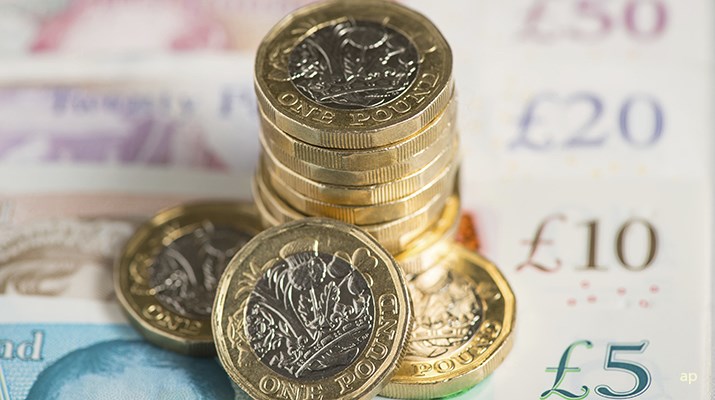
As companies scramble to survive the coronavirus crisis, investors are keeping a close eye on any announcements over dividend payments. Income from equities is crucial to many investors, particularly with interest rates falling further and bond yields so low.
Dividends are a key way for companies to attract capital – they are often the main reason investors buy the shares in oil companies, for example. But boards often take the decision to cut dividends at times of financial distress or even scrap them altogether. For example, during the financial crisis, Royal Bank of Scotland stopped paying dividends – and didn’t resume payouts for a decade.
Some companies have already announced changes to their dividend policy as a way of shoring up cash: US car giant Ford (F) last week said it was suspending its payout in response to the crisis.
Shell (RDSB), one of the biggest dividend payers in the FTSE 100, is suspending its share buyback scheme. The oil giant’s share price has plummeted in recent weeks and as a result is yielding 15% (just two weeks ago the shares were yielding 9%).
Some investors are braced for the worst; but Hargreaves Lansdown equity analyst Nicholas Hyett says Shell is doing all it can to preserve its pay out: “If the current oil price decline proves temporary then Shell will be rewarded for sticking to its totemic dividend policy.” But he warns that if we are entering an era of oil below $40 then the dividend may become insupportable.
Some analysts expect Shell to resume “scrip dividends”, where investors get new shares instead of cash, but this can be an unpopular policy for income investors who rely on the pay outs – particularly when oil company share prices have plunged.
AJ Bell investment director Ross Mould estimates that investors have already lost £1.5 billion in dividend income this year, with £500 million of cuts announced on Monday alone, including ITV (ITV) and Kingfisher (KGF). Last week Morrisons (MRW) suspended its special dividend despite booming sales. Housebuilder Persimmon (PSN) is the latest company to announce changes: it has cancelled its interim dividend and postponed the payment of its final payout.
How to Spot a Safe Dividend
But how can investors tell when a dividend is going to be cut? Analysts often look to a measures known as “dividend cover” as a yardstick of safe dividends. This is a multiple of that year’s profits that are paid out to shareholders. A dividend cover of 1 means that all of the year’s profits are being paid out as dividends, which is considered too low. Whereas a cover of 2 – which is considered ideal from an accounting perspective – means that this year’s dividends can be paid out twice from annual profits, leaving a buffer in case next year's earnings are not as good.
Of course, these are pre-crisis yardsticks and in the current conditions many companies want as much cash and as little debt as possible.
A report from Cannacord Gennuity reveals which companies have “Shaky Dividends”. The table above shows the dividend cover of some of the highest-yielding UK stocks. Notably, BP and Shell make it on the list with a dividend cover ratio of just 1.
Also on the list are Cineworld (CINE) and shopping centre group Hammerson (HMSO), two firms which are set to suffer as consumers stay indoors. As its share price has crashed an eye-watering 72% year to date, Cineworld's yield has rocketed to an unsustainable 41.4% and Hammerson's to 31.5% - typically, experts say a yield of 9% or more raises a red flag and start to look unsustainable. Elsewhere in the list is tobacco firm Imperial (IMB), which has been at the top of our high-yielding share list for months.
Cannacord looks at shares yielding above 3% with a dividend cover of less than 1.7 times and companies whose debt is above pre-tax profits. Negative growth in earnings per shares for this and previous years is also factored in.
BP on Shaky Ground
Looking at oil companies, BP is a new entrant to Cannacord’s list because previously it was one of the most stable dividends in the FTSE and a mainstay of many pension funds. “BP’s dividend is unlikely to be covered by cash flows unless we see oil prices move sharply higher,” says Simon McGarry, senior equity analyst, Canaccord Genuity Wealth Management.
Imperial Tobacco has previously been flagged on Cannacord’s radar because of its high yield even before the crisis, and because under a new chief executive the dividend policy is likely to be reviewed.
Morningstar's Dan Lefkovitz looks back to the financial crisis for an idea of what companies are going to do next - "economic downturn is imminent, and it will hurt many dividend payers", he says. He advises investors to be very selective when looking at dividend payers and to avoid value traps.
Investors are right to be anxious in these uncertain times, and once "solid" dividend payers may be the first to cut - but low dividend cover is not an automatic sell signal and shouldn't necessarily put you off buying the stock. It is, however, a reliable warning signal of things about to go wrong. It is a lagging indicator, in that companies are still working through what this crisis means for profits, so it's worth keeping a close eye on dividend cover in the coming months.




























